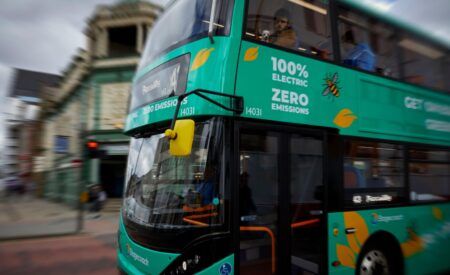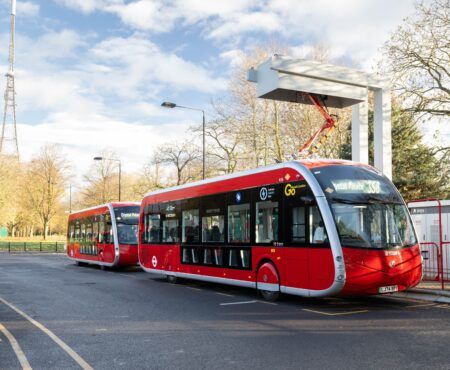More than 40 partners and supporting organizations have joined the International Transport Forum (ITF) at the official launch of a major global initiative toward carbon-free transport, as the movement of people and goods currently contributes 23% of global CO? emissions from fossil fuels, with the share expected to rise.
The project was unveiled at the ITF’s Annual Summit, the world’s largest gathering of transport ministers and the leading global platform for dialogue on transport policy, which has been taking place in Leipzig, Germany, this week (May 18-20).
The Decarbonizing Transport project aims to:
Provide a common assessment tool based on a comprehensive modeling framework supported by dialog with key stakeholders, which is deemed as essential for ‘clarity, transparency and understanding’ of Intended Nationally Determined Contributions as required in the Paris Agreement for carbon emissions. This approach will enable the ITF and its partners to evaluate the impacts of different sets of measures on carbon reduction;
Enable countries and other stakeholders to translate roadmaps into actions that deliver results grounded in quantitative data;
Support actions to achieve the UN Sustainable Development Goals, along with the decarbonization of the transport sector.
The preliminary results of the project will be presented at the next ITF Summit in May 2017, and the work will be completed by 2018/19, in time for the first round of reviews of the COP21 decarbonization targets in 2020.
The Decarbonizing Transport project is supported by a wide range of stakeholders, including private sector companies, multilateral development banks, intergovernmental organizations, sector associations, NGOs and research institutions.
The partners from the road transport sector include: Anheuser Busch InBev, China Communications Constructions Company (CCCC), European Conference of Transport Research Institutes (ECTRI), European Cyclists’ Federation (ECF), ExxonMobil, Fédération Internationale de l’Automobile (FIA), Ford, Global Fuel Economy Initiative (GFEI), Google, Here, IBM, Inrix, International Council on Clean Transportation (ICCT), International Federation of Freight Forwarders Associations (FIATA), International Federation of Pedestrians, International Association of Public Transport (UITP), International Road Transport Union (IRU), The Institute for Transport and Development Policy (ITDP), Kapsch TrafficCom AG, The Korea Transport Institute (KOTI), Michelin, Nissan, NXP, Partnership on Sustainable Low Carbon Transport (SLoCaT), POLIS Network, PTV Group, Total, Transport & Environment, Uber, University of California at Davis, Volvo, and the United Nations.
“The COP 21 Paris Agreement created a political pathway for global CO? mitigation efforts. The key is to close the gaps between commitments and delivery. It is now up to the transport sector to demonstrate how carbon-free mobility can be achieved. That is why we are launching the Decarbonizing Transport project today,” said ITF Secretary-General José Viegas (above).
“This is a very ambitious project. But ambition is what the world needs to stop climate change. Ambition is also something that has characterized the transport sector throughout its long history of innovation. Our challenge is to reduce transport CO? without sacrificing the access and opportunities offered by transport, keeping our societies together and making our economies turn.
“The inclusive nature of this project is a central feature and key factor for success of this project. It makes me proud that in only four months, more than 40 partners and supporting organizations are committing to bringing knowledge, data, networks and financial contributions to the Decarbonizing Transport project. I welcome other organizations, companies and institutions to join.”




